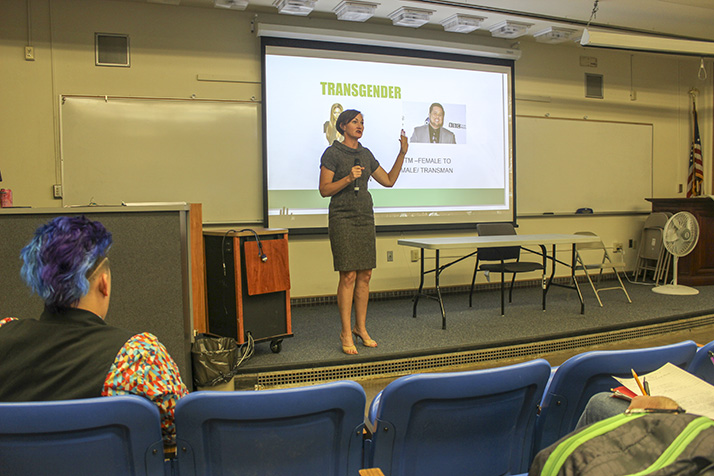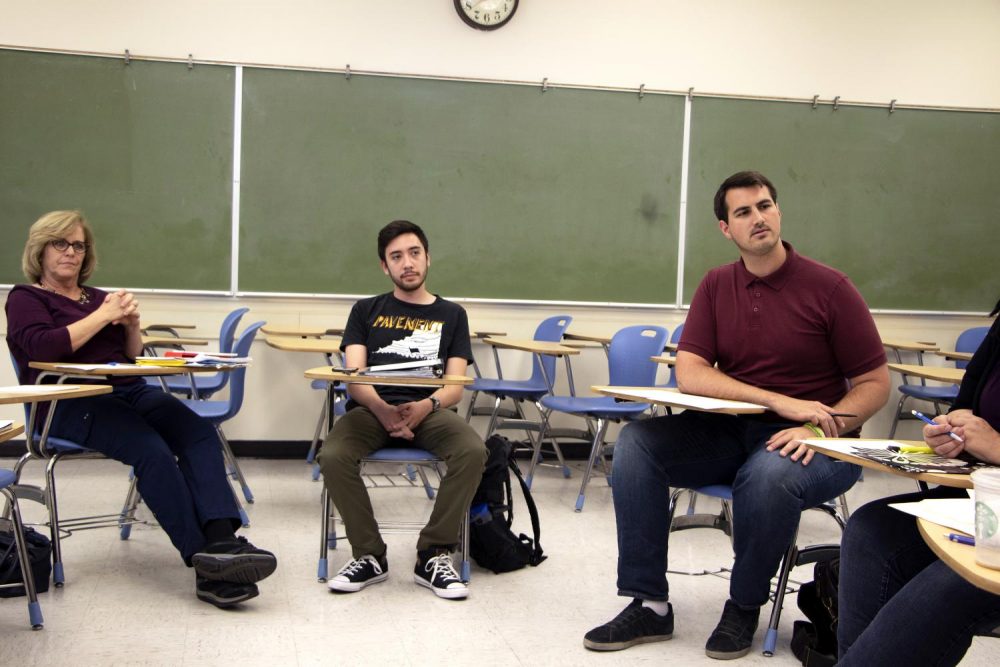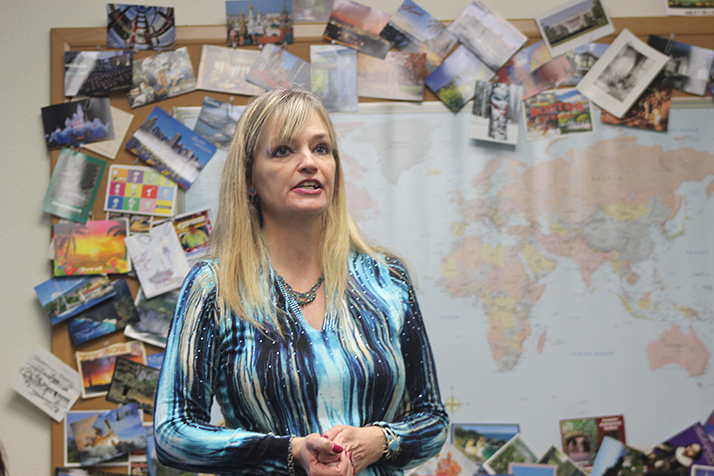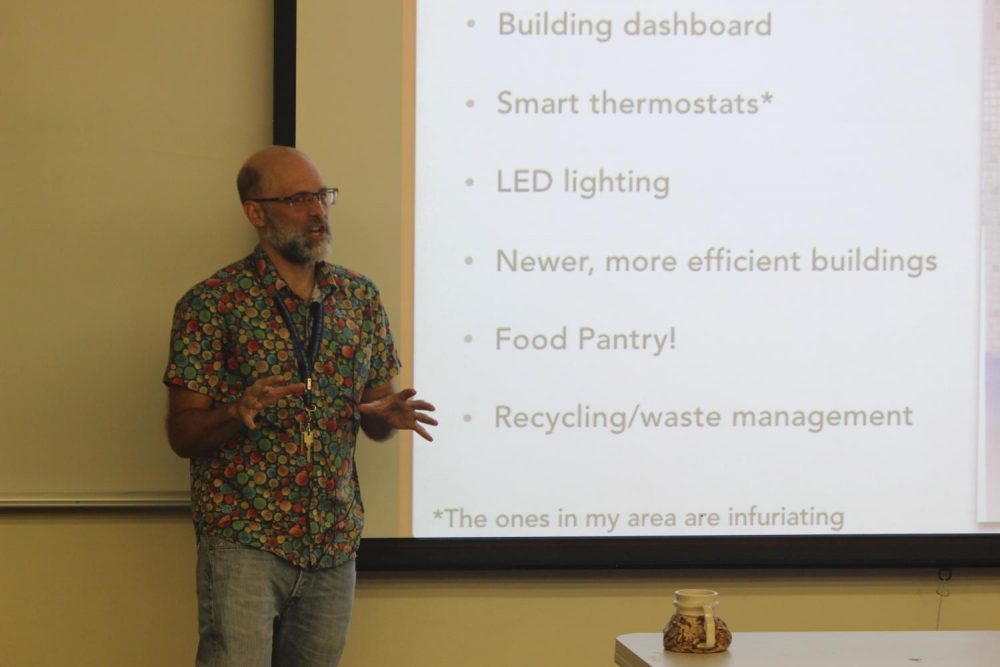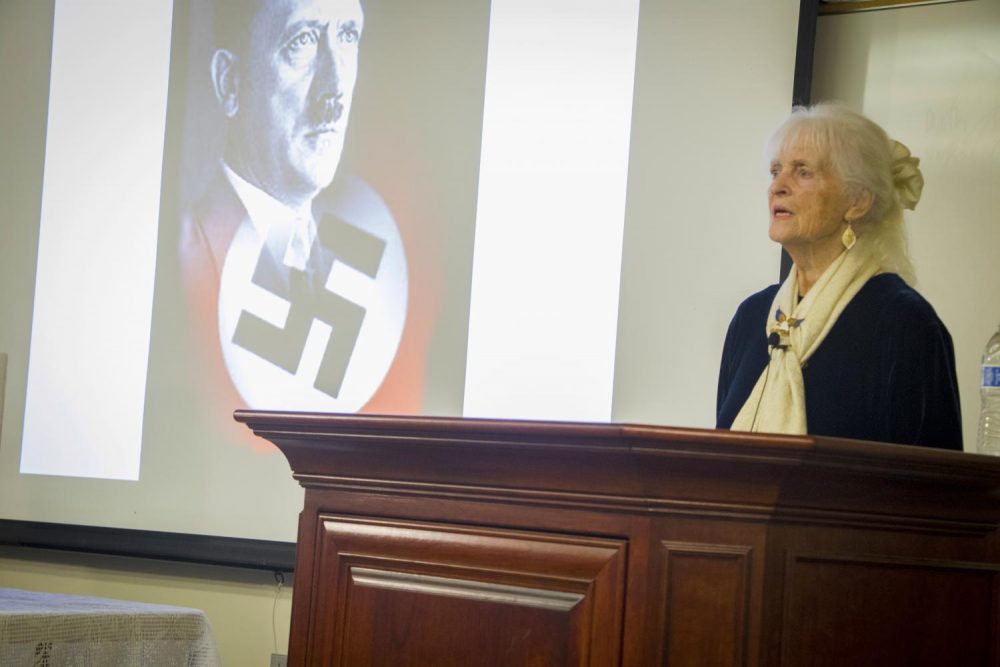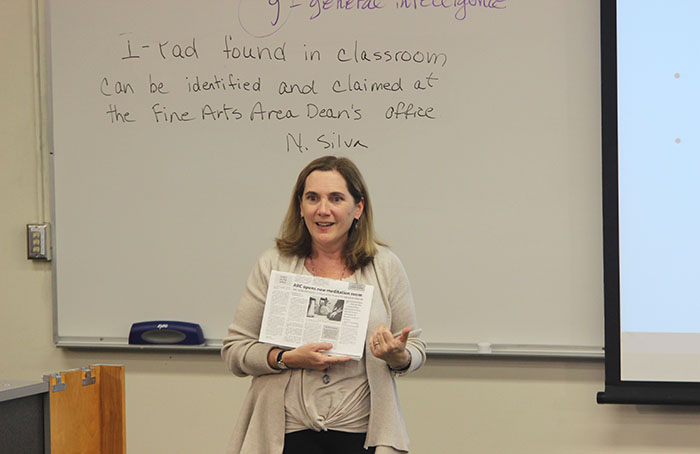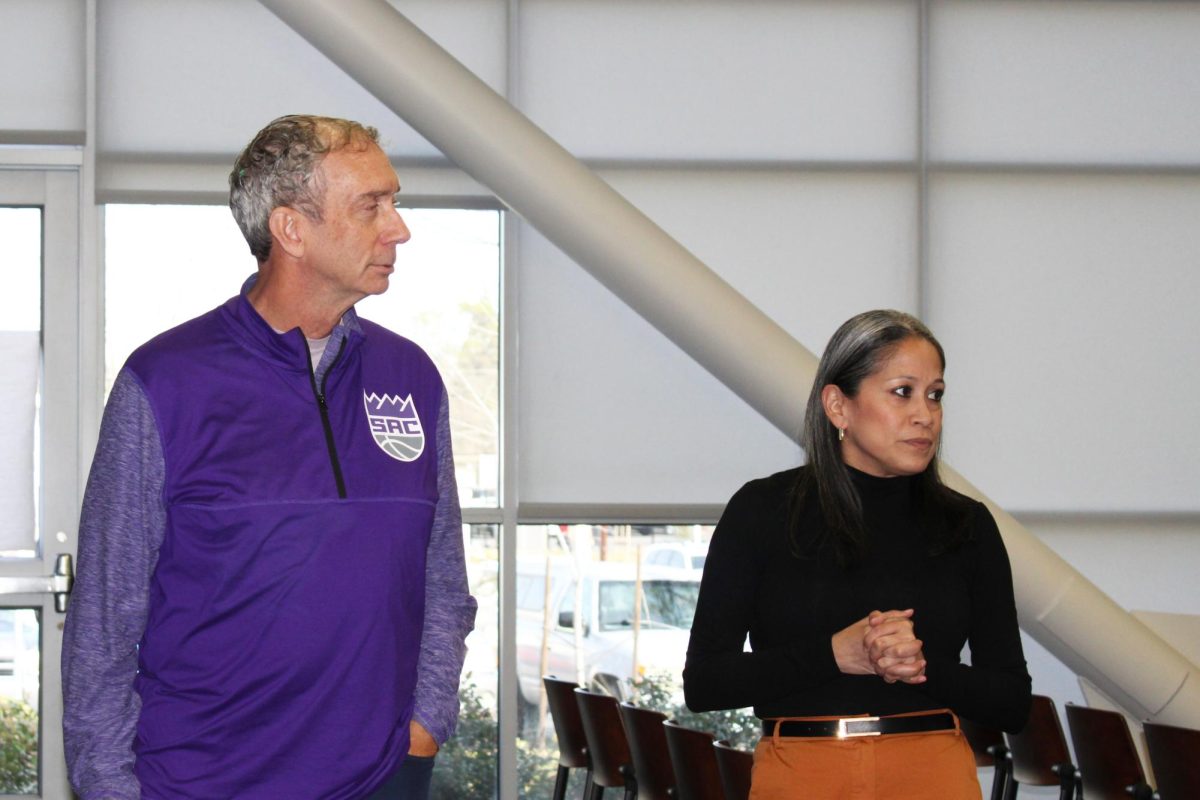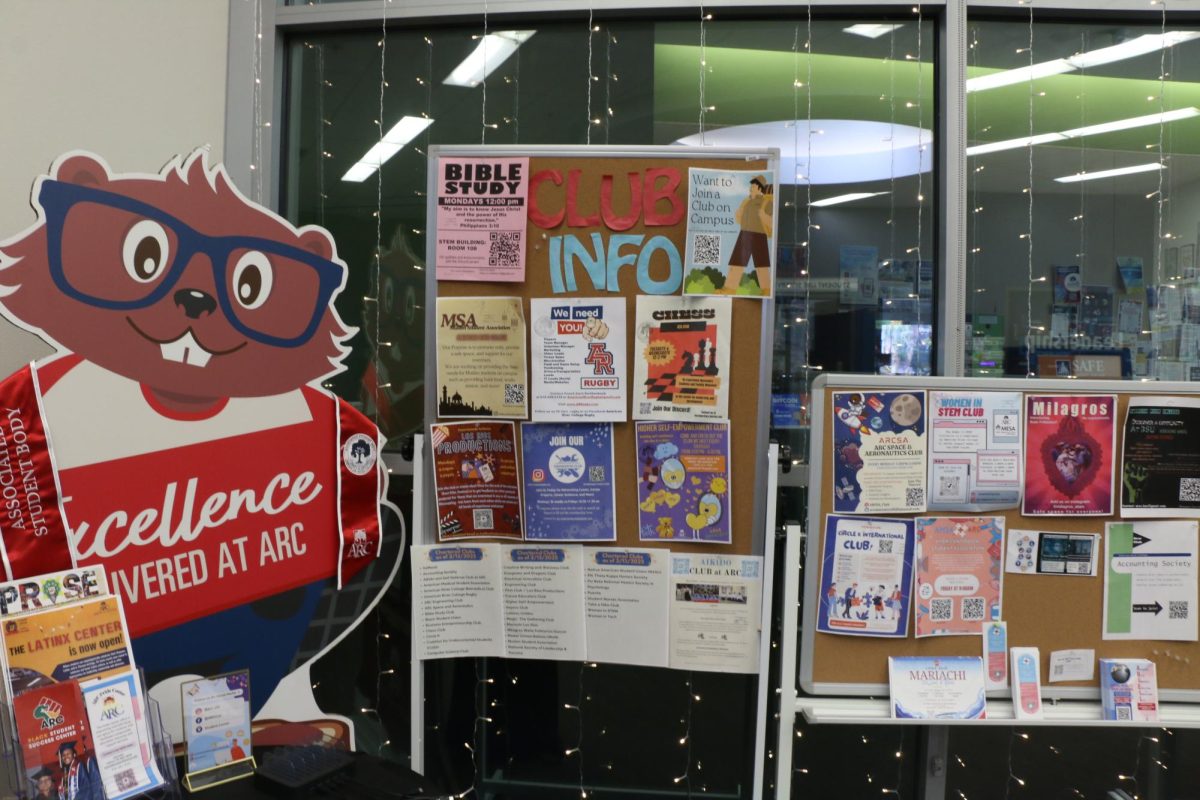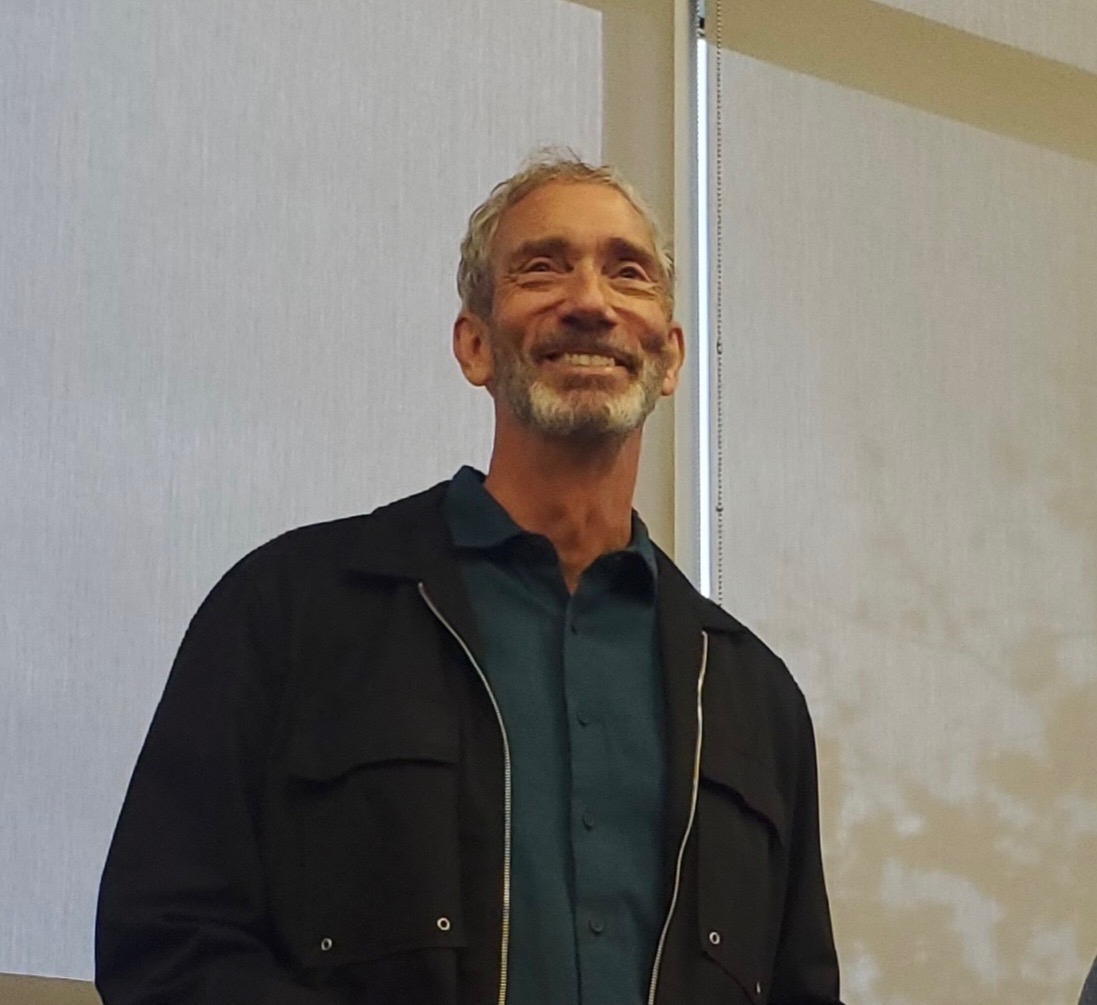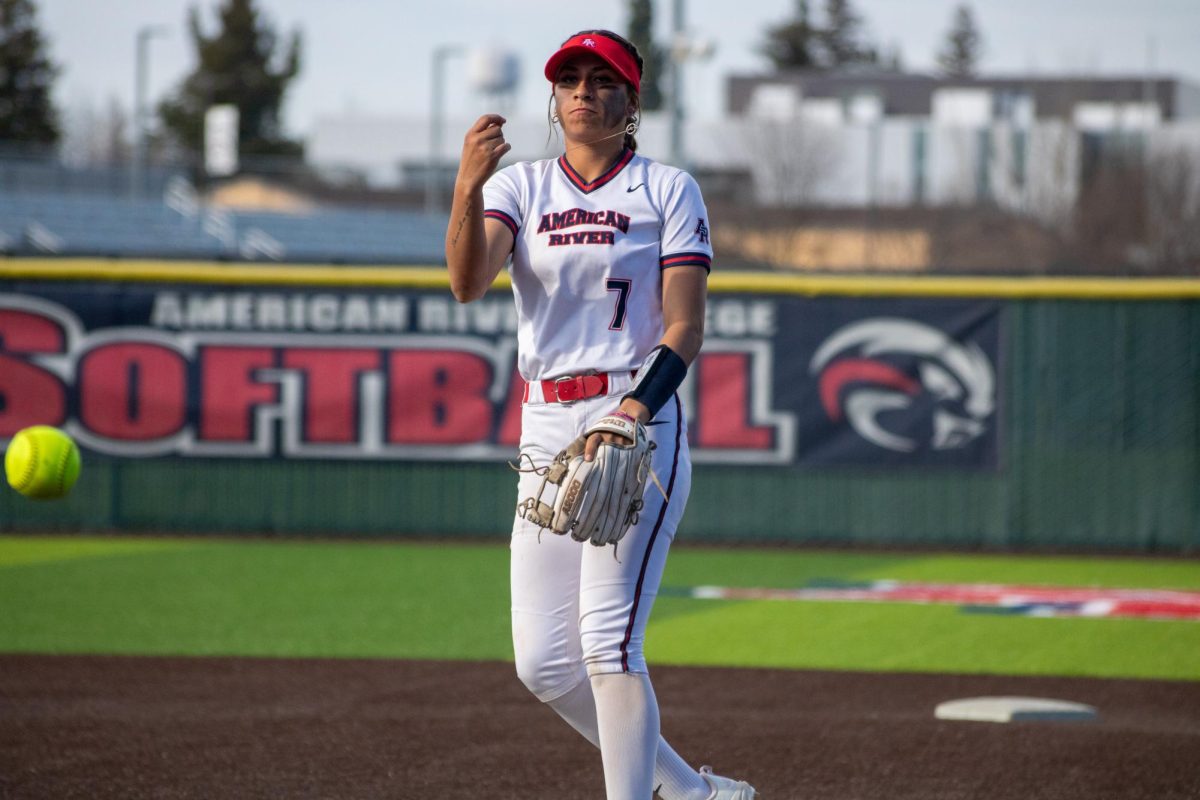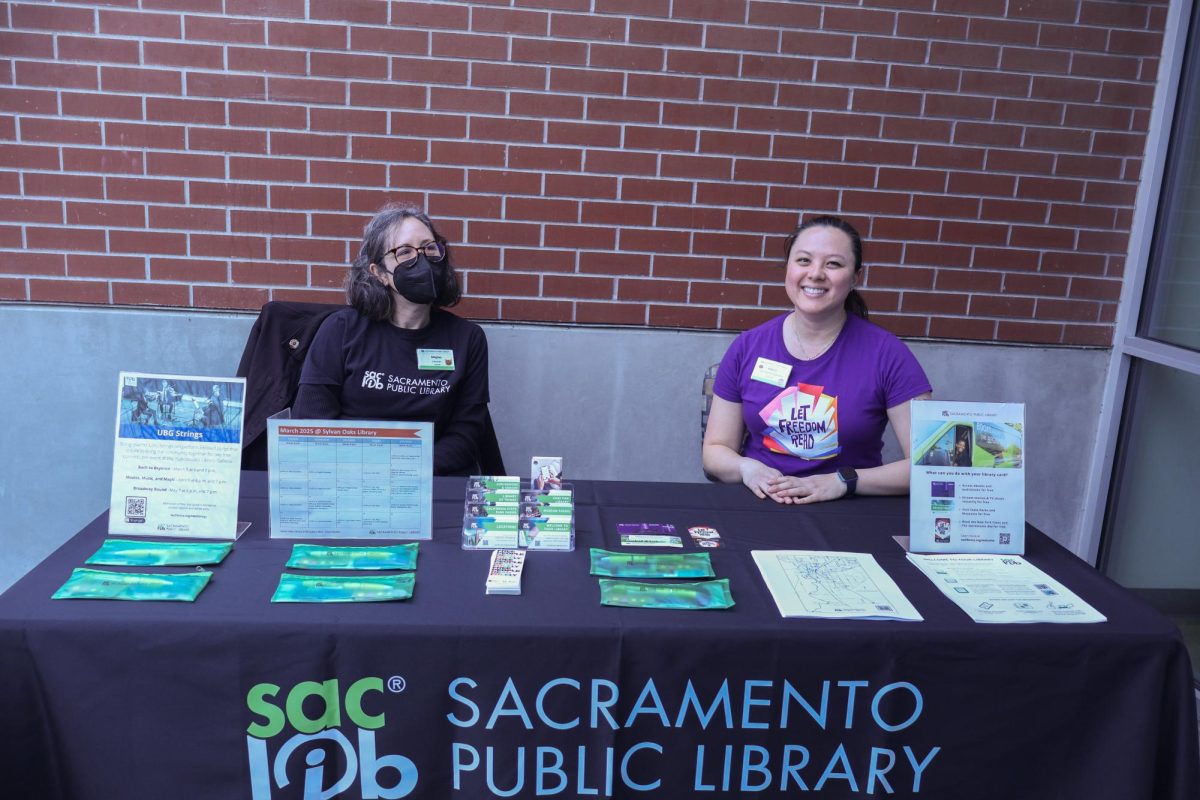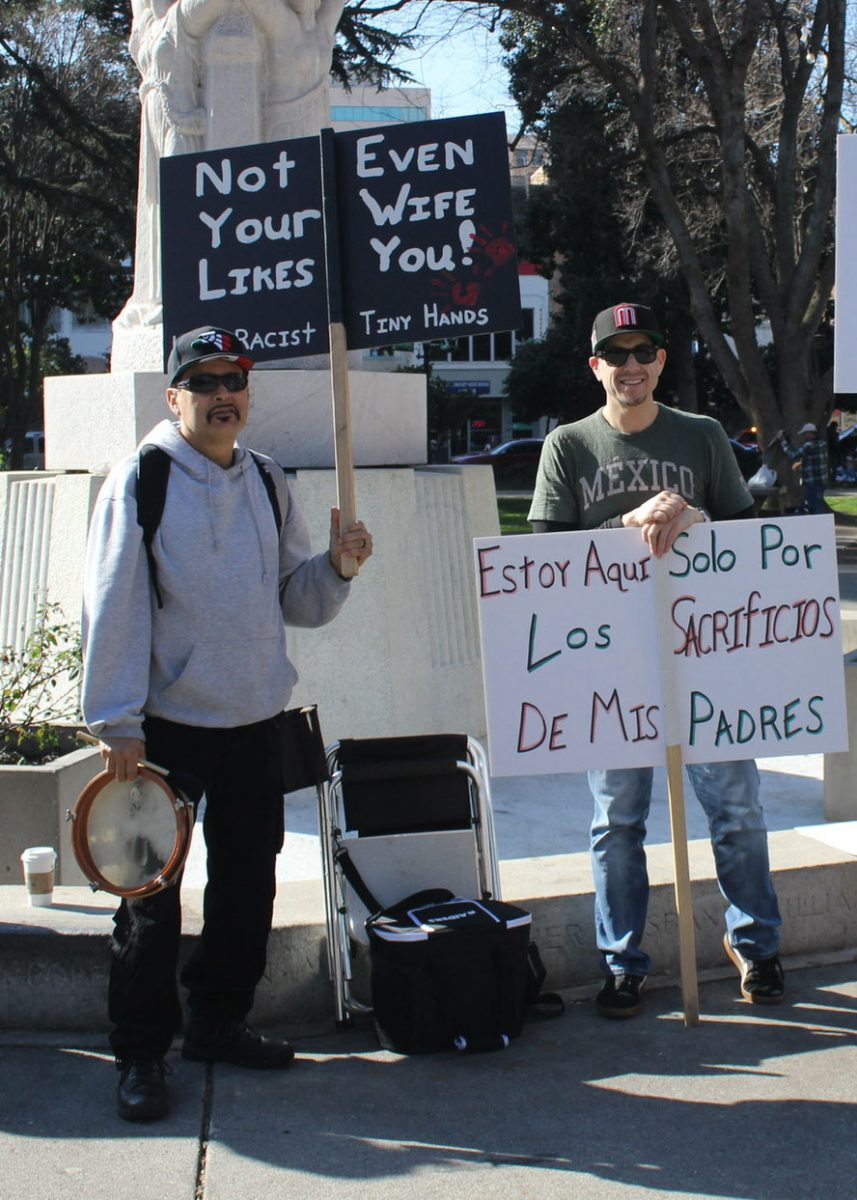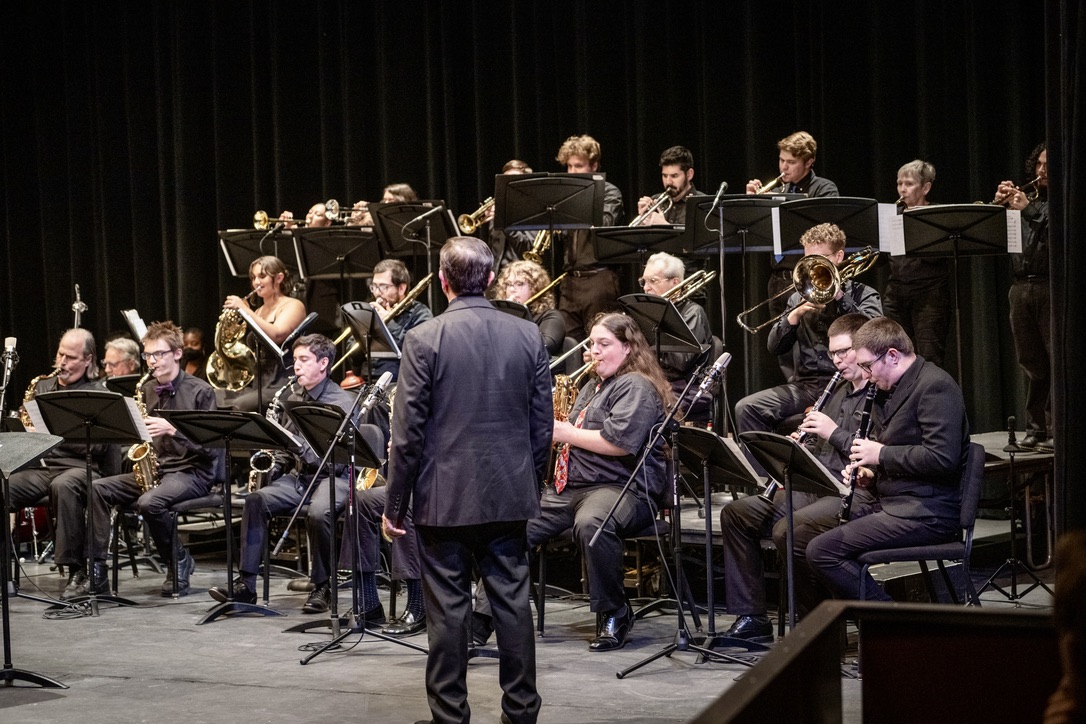American River College hosted a college hour on how to be an LGBTQ+ ally on Sept. 20, where students, staff and faculty learned accurate terminology, respectful communication and protective policies surrounding the LGBTQ+ community on campus.
The college hour covered the terms, definitions, and identities within lesser known gender identities and sexual orientations.
Dr. Emilie Mitchell, professor of human sexuality and the Pride Center coordinator at ARC, led the lecture that defined terms, discussed mandated policies and taught how to be an ally to the LGBTQ+ community.
“This training helps clear up confusion and talk about some of the newer terms for folks who haven’t been as immersed in this field and are less aware of the different gender and sexual identities,” Mitchell said. “Then, once they are comfortable, we do some scenario based learning.”
Joshua Moon Johnson, the Dean of Equity Programs and Pathways, said it is important to have scenario-based learning because peer-to-peer support and peer-to-peer mistreatment has a big impact on the environment they are providing. He said he would like every faculty member, staff member and student to have this training.
“The goal is to continue to build partnerships with other departments,” Moon Johnson said. “If the Pride Center is the only place on campus where LGBTQ people feel understood and supported, we are not doing our job. Every space on this campus will be a space where LGBTQ students feel safe.”
Allies shouldn’t feel bad if they don’t know what all the terms mean, according to Mitchell’s lecture. How you identify, to whom you are attracted, the biology and anatomy with which you were born and the gender you express are all completely different, Mitchell said.
Antonio Mendoza, a physics major who attended the event, said the training will help him know what to do if he needs to intervene on behalf of a ‘queer’ student. He said he learned how to handle discrimination of LGBTQ+ people in a variety of situations.
“It was really helpful for dealing with things in a professional manner,” Mendoza said. “I need to be mindful about dealing with people’s pronouns and not relying on assumptions.”
Mitchell said if someone is unsure about how to address a person, it is best to respectfully ask, ‘What are your pronouns?’. If that doesn’t flow well in to the conversation, or at the risk of ‘outing’ someone, it is best to use “they/them,” Mitchell said.
Los Rios Community College District’s harassment and discrimination policy covers gender identity. Students are allowed to use any bathroom that aligns with their identity and instructors are required to use students’ proper gender pronouns.
“Once [allies] know what the issues are, they can help LGBTQ people on campus, in their classrooms, and in their lives,” Moon Johnson said.
The ARC Pride Center, located in the Hub of the Student Center, is the only center in the LRCCD with a staff to address these issues, Mitchell said. She wants to export their model to other community colleges. Mitchell said ARC has one of six staffed pride centers for community colleges nationwide; there are four in California and three of those are specific to Northern California community colleges.


